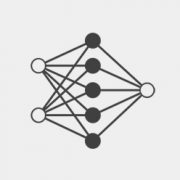About National Entrepreneurship Network (A program of the AI Unit of NEN)
The National Entrepreneurship Network is an independent non-profit institute developing AI solutions for social good. We are supported by reputed global institutions such as the Bill and Melinda Gates Foundation, Google, and USAID. We work closely with Central and State Governments in India to collaborate on solutions in the domains of healthcare and agriculture.
About the RFP
NEN is looking to develop an AI-enabled solution to provide Rapid Radiological Feature Detection services at remote healthcare facilities. An AI model has been trained to detect 14 common radiological features in digital chest X-Rays. The solution is expected to reduce the human effort by radiologists involved in interpreting chest X-rays, capture information available in the X-rays and transmit the information to designated servers. This model has been trained on a publicly available open-source dataset of over 1 lakh annotated chest X-Ray images. To further refine the model, the team will need access to Indian datasets of annotated chest X-rays images to improve its sensitivity and specificity scores and deploy the same in the Indian public health care system on a national scale.
NEN is looking for organizations with access to large datasets of chest X-rays based in India. Working closely with NEN (which will head solution development and guide algorithm development), the partner organization will provide access to relevant anonymised datasets that will be used by NEN to design, develop and improve the computer vision algorithm. The chest x-rays should include some if not all of the following ‘Radiological Labels’ ((i.e. a list of formations visible in the images).
1. Consolidation
2. Nodule
3. Pneumothorax
4. Fibrosis
5. Cardiomegaly
6. Hernia
7. Pleural Effusion
8. Rib Fractures
9. Supported Devices
10. Emphysema (only if available)
11. Edema (only if available)
12. Atelectasis (only if available)
13. Pleural Thickening (only if available)
For more details, please click on the button below to download the complete version of the RFP.
Interested agencies are required to mail their bids as separate attachments by 22 March 2022, 11.59pm, to procurement@wadhwaniai.org.

© 2025 Wadhwani AI
ROLES AND RESPONSIBILITIES
An ML Engineer at Wadhwani AI will be responsible for building robust machine learning solutions to problems of societal importance; usually under the guidance of senior ML scientists, and in collaboration with dedicated software engineers. To our partners, a Wadhwani AI solution is generally a decision making tool that requires some piece of data to engage. It will be your responsibility to ensure that the information provided using that piece of data is sound. This not only requires robust learned models, but pipelines over which those models can be built, tweaked, tested, and monitored. The following subsections provide details from the perspective of solution design:
Early stage of proof of concept (PoC)
Late PoC
This is early to mid-stage of AI product development
Post PoC
Responsibilities during production deployment
We realize this list is broad and extensive. While the ideal candidate has some exposure to each of these topics, we also envision great candidates being experts at some subset. If either of those cases happens to be you, please apply.
DESIRED QUALIFICATIONS
Master’s degree or above in a STEM field. Several years of experience getting their hands dirty applying their craft.
Programming

ROLES AND RESPONSIBILITIES
As an ML Scientist at Wadhwani AI, you will be responsible for building robust machine learning solutions to problems of societal importance, usually under the guidance of senior ML scientists. You will participate in translating a problem in the social sector to a well-defined AI problem, in the development and execution of algorithms and solutions to the problem, in the successful and scaled deployment of the AI solution, and in defining appropriate metrics to evaluate the effectiveness of the deployed solution.
In order to apply machine learning for social good, you will need to understand user challenges and their context, curate and transform data, train and validate models, run simulations, and broadly derive insights from data. In doing so, you will work in cross-functional teams spanning ML modeling, engineering, product, and domain experts. You will also interface with social sector organizations as appropriate.
REQUIREMENTS
Associate ML scientists will have a strong academic background in a quantitative field (see below) at the Bachelor’s or Master’s level, with project experience in applied machine learning. They will possess demonstrable skills in coding, data mining and analysis, and building and implementing ML or statistical models. Where needed, they will have to learn and adapt to the requirements imposed by real-life, scaled deployments.
Candidates should have excellent communication skills and a willingness to adapt to the challenges of doing applied work for social good.
DESIRED QUALIFICATIONS
